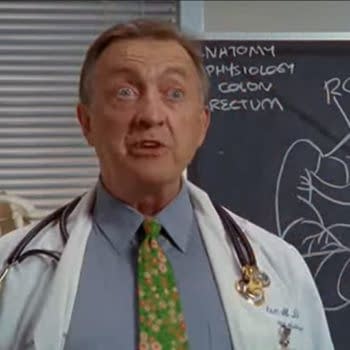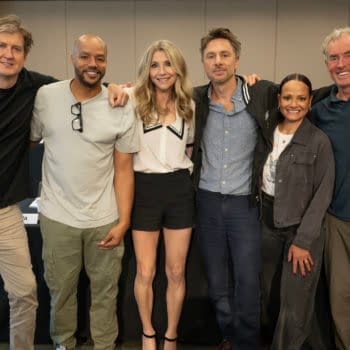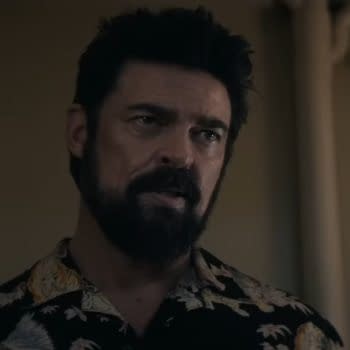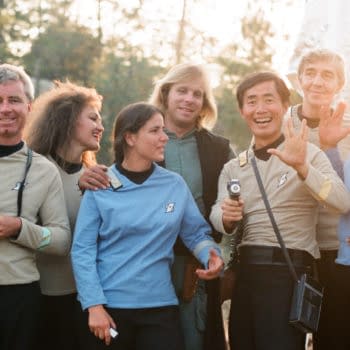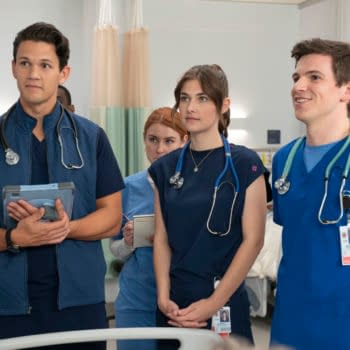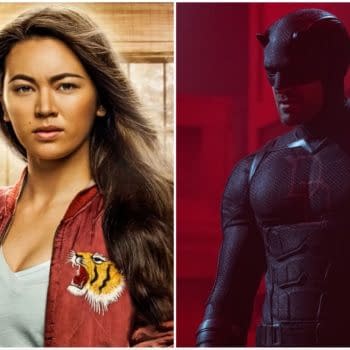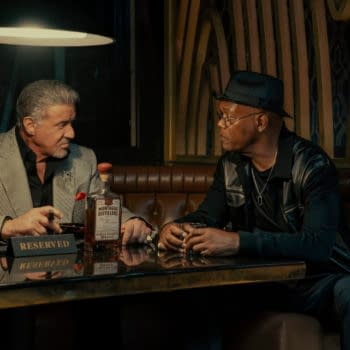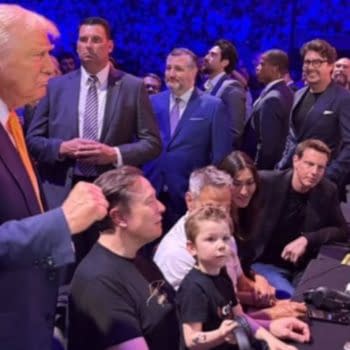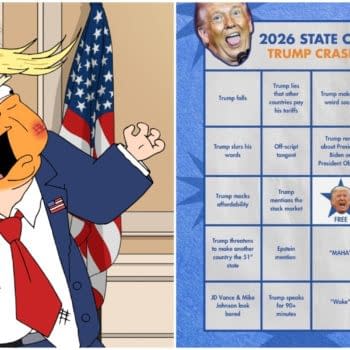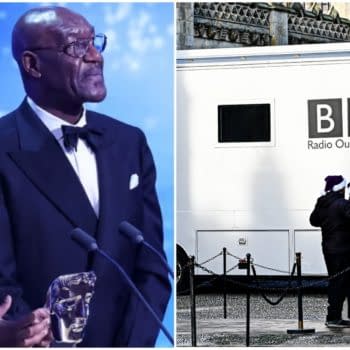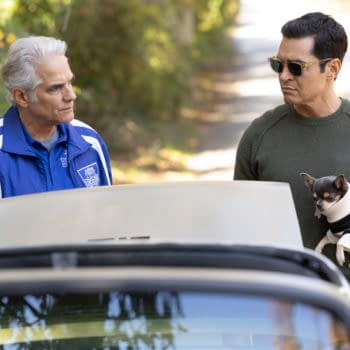Posted in: Netflix, TV | Tagged: Amber Noizumi, Blue Eye Samurai, exclusive, interview, michael green, netflix
Blue Eye Samurai Creators Talk Inspirations, Casting, Season 2 & More
Blue Eye Samurai creators Amber Noizumi and Michael Green spoke with us about their inspirations, casting the animated series, and more.
When the husband-and-wife creative duo of Michael Green and Amber Noizumi conceived the Netflix adult animated period series Blue Eye Samurai, it became a personal story of the difficulties of growing a mixed-race child with revenge in her heart. The story follows Mizu, voiced by Maya Erskine (Mr. and Mrs. Smith), a half-white, half-Japanese onna-musha (Female warrior), who quests vengeance against four white men, one of whom is her father, who illegally remained in Japan during the closing of its borders by the Tokugawa shogunate during Japan's Edo period. The two spoke to Bleeding Cool about how Noizumi's experiences inspired the animated series, why Erskine was perfect for Mizu, casting the series, whether the series was considered for live-action, and what they have in store for season two.
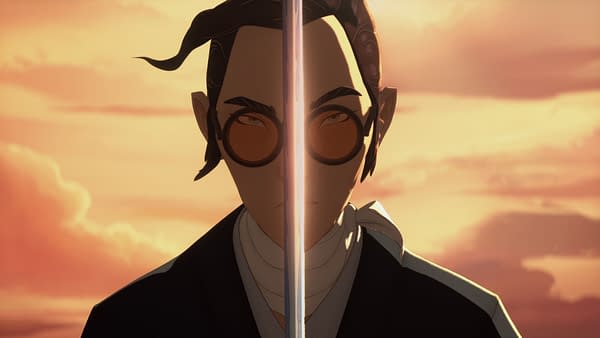
Blue Eye Samurai Creators Amber Noizumi and Michael Green on Female-Led Animated Samurai Tale of Vengeance
Bleeding Cool: What's the inspiration behind Blue Eye Samurai?
Noizumi: My childhood growing up half Japanese and half white, but the inspiration came from when we had our first child together, and she was born with blue eyes. I was so happy she had blue eyes, and I had this little white-looking baby that made me think, "Why would I want my child to look white? Why wouldn't I want her to look more Asian or more like me?" Those gross feelings and having to navel gaze and think about why I'm feeling this way made us think, "What would it have been like in the Edo period for a child when the borders were closed, who looked different and had more white features?" The Japanese people would think that kid was monstrous and, from there, sprung this idea of a murderous, self-loathing samurai.
What made Maya Erskine perfect to play Mizu, and what she brought to the character?
Noizumi: We are big fans of 'Pen15' and the show is written and produced by Maya. She brought so much pain to the hilarity there. You could see that childhood pain, which was what we were going for with Mizu. She touches on a lot about this, maybe not self-loathing, but the conflicting feelings of being mixed race growing up in Southern California in the 90s. I thought she would be perfect for the role of Mizu, and she was.
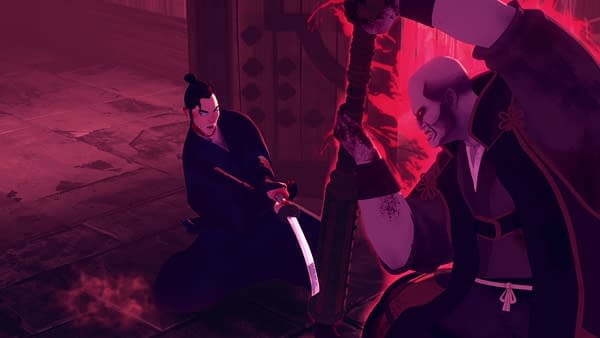
How did the rest of the cast come together?
Green: We got very fortunate we asked all the people who were at the top of the wish list, and they all said, "Yes." It might be we were a weird little show, and it seemed like fun, or it might be it was during Covid; a lot of them had time, and could record at home. We wrote some of our characters with their voices in mind, and it was a tickle when we would say, "Let's see…it's sort of a Masi Oka-type person," and Masi says, "Yes," or a Randall Park-type voice and Randall Park says, "Yes." We kept getting lucky, and we got our first "No" for a guest cast because someone was busy. We're like, "What do you mean he said, 'No?!'"
Noizumi: We got spoiled [laughs].
Green: Also props to our, casting directors, Margery Simkin and all Orly Sitowitz who helped get that cast come together and continue to bring together a fun, surprising, roster of people for season two that we're excited to talk about.
Was the series always envisioned to be animated, or was there consideration to make it a live-action?
Noizumi: We always wanted it to be animated. We felt animation would give us this living art and have this elevated, somewhat surreal experience that can only be brought by the medium of animation.
Green: We didn't take it out as a pitch until we had thought of it as an adult animated drama. That was the pitch we took out as an animated drama.
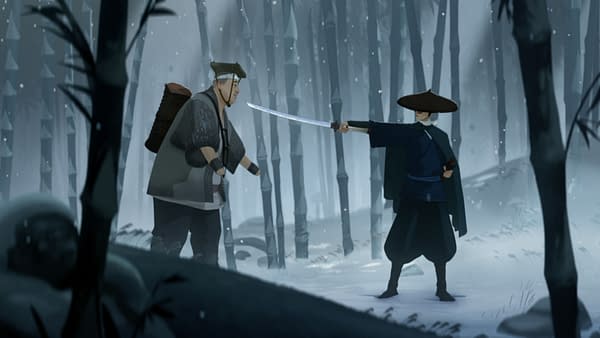
What creatively was the most difficult aspect in the first season to develop?
Noizumi: It was getting our bearings. Michael and I didn't know much animation, and this was all…as soon as the world shut down, we were trying to figure everything out.
Green: Animation is hard enough, and Covid was hard for everyone. We were for it so here's an interesting tidbit: We were the only drama at Netflix that never shut down during Covid. We started because it was animation, and in the earlier stages, we kept trucking along, not efficiently, because nothing was efficient then. It was harder to keep moving things through when people were not their best selves, and we were already trying something very ambitious. We ended up working with a phenomenal team and were all appreciative of having this show to escape to instead of worrying about the world falling apart.
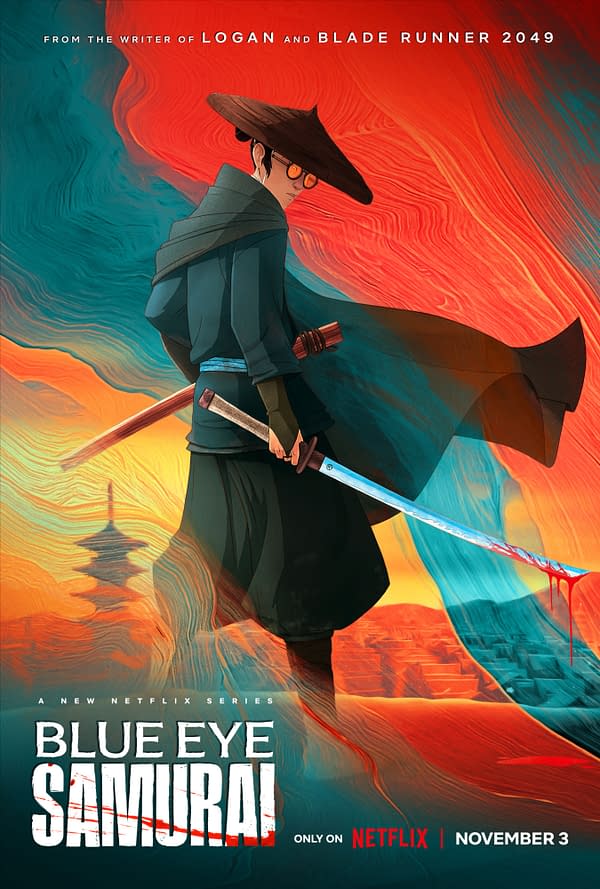
Is there anything you could say we can look forward to in the second season?
Green: That we can say that we should say. We're a little early on that. I'm sorry I can't give you spoilers just yet.
Noizumi: There will be new characters, new villains for her to find, and new friends to meet along the way.
Green: Here's the exciting thing. We're working predominantly with the same team that made season one great, with many new faces who make it even greater. We have terrific directors coming in, and new cast members who we're excited to write for. It'll be exciting for the audience as a six-episode season, and our design team is currently designing the first two episodes. Storyboards are coming in, and we are on our phones right now. We have an email we're supposed to look at with the storyboards from the first episode. We're more than halfway done writing this season.
Blue Eye Samurai, which has been nominated for two Emmys, including Outstanding Sound Editing for a Comedy or Drama Series (Half-Hour) and Animation and Outstanding Animated Program, also stars George Takei, Brenda Strong, Darren Barnet, Kenneth Branagh, and Cary-Hiroyuki Tagawa. Season one is available on Netflix.






